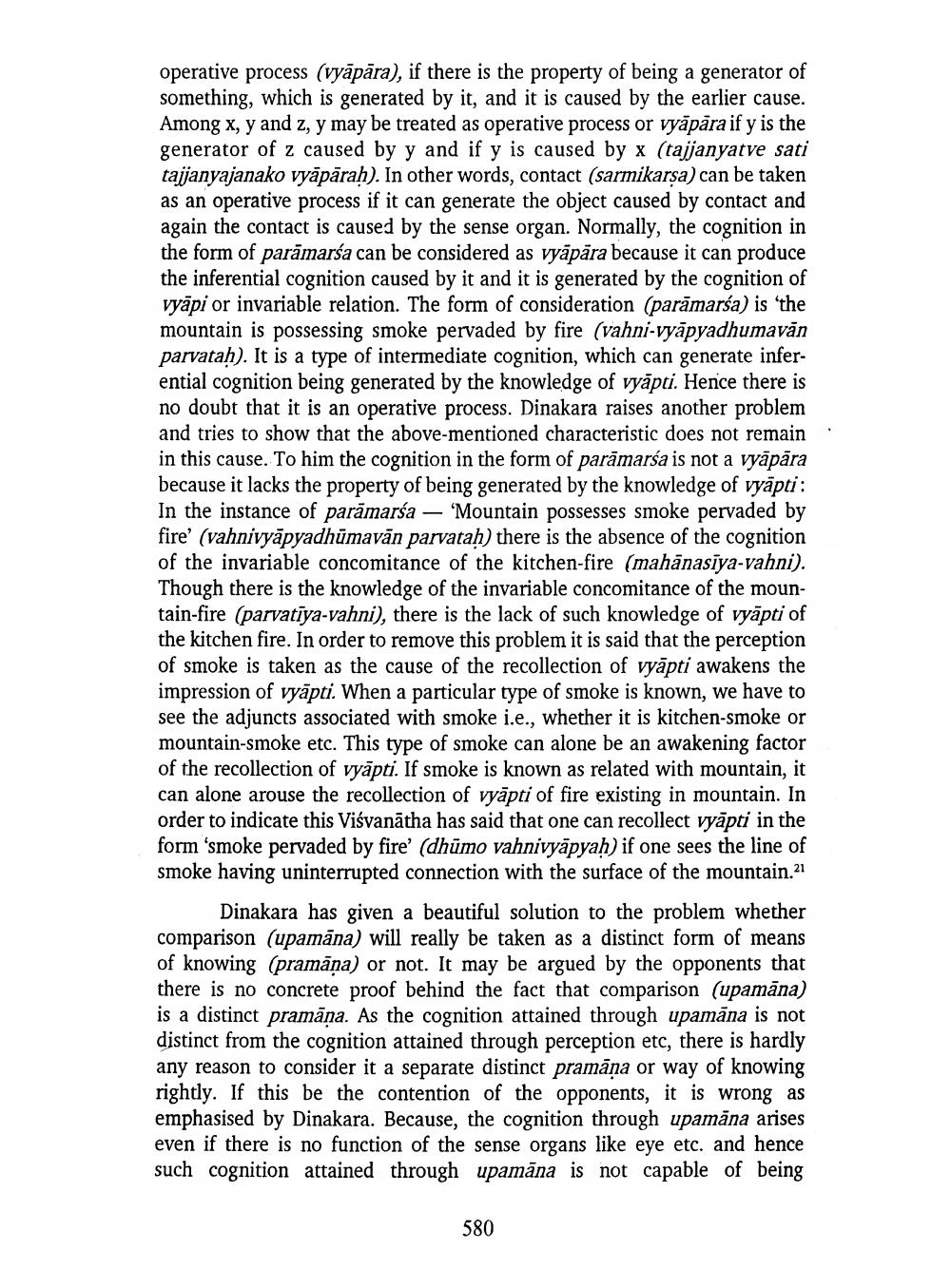________________
operative process (vyāpāra), if there is the property of being a generator of something, which is generated by it, and it is caused by the earlier cause. Among x, y and z, y may be treated as operative process or vyāpāra if y is the generator of z caused by y and if y is caused by x (tajjanyatve sati tajjanyajanako vyāpāraḥ). In other words, contact (sarmikarsa) can be taken as an operative process if it can generate the object caused by contact and again the contact is caused by the sense organ. Normally, the cognition in the form of paramarśa can be considered as vyāpāra because it can produce the inferential cognition caused by it and it is generated by the cognition of vyāpi or invariable relation. The form of consideration (paramarśa) is 'the mountain is possessing smoke pervaded by fire (vahni-vyāpyadhumavān parvataḥ). It is a type of intermediate cognition, which can generate inferential cognition being generated by the knowledge of vyapti. Hence there is no doubt that it is an operative process. Dinakara raises another problem and tries to show that the above-mentioned characteristic does not remain in this cause. To him the cognition in the form of paramarśa is not a vyāpāra because it lacks the property of being generated by the knowledge of vyāpti : In the instance of paramarśa 'Mountain possesses smoke pervaded by fire' (vahnivyapyadhūmavan parvatah) there is the absence of the cognition of the invariable concomitance of the kitchen-fire (mahānasīya-vahni). Though there is the knowledge of the invariable concomitance of the mountain-fire (parvatiya-vahni), there is the lack of such knowledge of vyapti of the kitchen fire. In order to remove this problem it is said that the perception of smoke is taken as the cause of the recollection of vyapti awakens the impression of vyapti. When a particular type of smoke is known, we have to see the adjuncts associated with smoke i.e., whether it is kitchen-smoke or mountain-smoke etc. This type of smoke can alone be an awakening factor of the recollection of vyapti. If smoke is known as related with mountain, it can alone arouse the recollection of vyāpti of fire existing in mountain. In order to indicate this Viśvanatha has said that one can recollect vyapti in the form 'smoke pervaded by fire' (dhūmo vahnivyāpyah) if one sees the line of smoke having uninterrupted connection with the surface of the mountain.21
-
Dinakara has given a beautiful solution to the problem whether comparison (upamāna) will really be taken as a distinct form of means of knowing (pramāṇa) or not. It may be argued by the opponents that there is no concrete proof behind the fact that comparison (upamāna) is a distinct pramāṇa. As the cognition attained through upamana is not distinct from the cognition attained through perception etc, there is hardly any reason to consider it a separate distinct pramāņa or way of knowing rightly. If this be the contention of the opponents, it is wrong as emphasised by Dinakara. Because, the cognition through upamāna arises even if there is no function of the sense organs like eye etc. and hence such cognition attained through upamana is not capable of being
580




